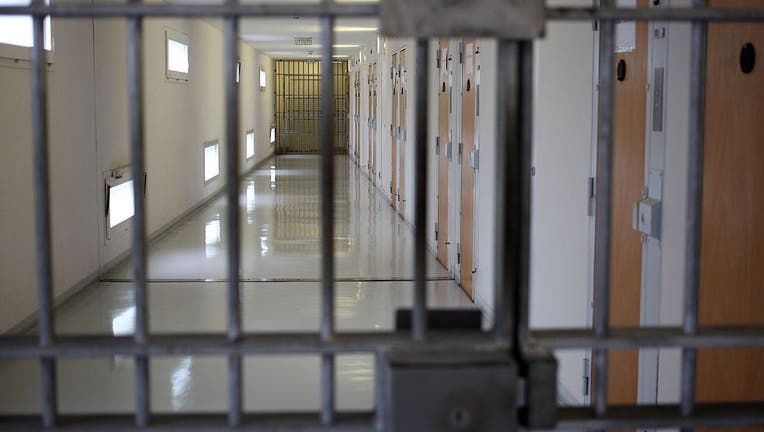Inspector general faults California prisons for poor coronavirus checks

Photo credit: RICHARD BOUHET/AFP via Getty Images
SACRAMENTO, Calif. - California prisons were inconsistent in screening employees and visitors for the coronavirus, which may have increased the risk of its spread, the state’s inspector general said in a report Monday.
The report does not link the poor practices to the worst outbreak, which resulted from a botched transfer of infected inmates from a Southern California prison to San Quentin State Prison near San Francisco. Twenty-five inmates and one correctional officer have died there, though infections that at one point topped 2,100 have since dropped to 77 active cases.
But the report criticizes the California Department of Corrections and Rehabilitation for vague rules and inadequately trained staff that allowed some visitors and employees to enter prisons before they were properly screened.
By the numbers: A look at who has died of coronavirus in California prisons
The screeners said that the thermometers they used to check for fevers did not always work properly, were not always accurate, and in some cases lacked battery power, according to the report.
Employees were supposed to ask other staff and visitors a series of questions starting in March to determine if they were sick or might have been exposed to the virus before letting them enter the prison grounds.
“We found that the department’s vague screening directives resulted in inconsistent implementation among the prisons, which left some staff and visitors entering prisons unscreened,” the inspector general reported.
The state inspectors themselves went unchallenged during 18% of their more than 200 prison visits.
Inspector General Roy Wesley also criticized corrections officials for withholding background data that the department used to track which employees had tested positive, despite Wesley’s argument that state law allows his office access to that sort of protected information.
Corrections officials initially cited state and federal medical privacy laws.
They relented after they read the draft report, but that reversal “does not alleviate the adverse effect its initial decision had on our ability to fulfill our mission,” Wesley said in an accompanying letter to Assembly Speaker Anthony Rendon, who had requested the investigation.
Rendon had specifically sought a timeline on how the outbreak grew, but Wesley said corrections officials wouldn’t provide it for employees.
Having access even to protected information “highlights our independence from the department and ensures that departmental staff — including its highest-level executives — cannot interfere with our work or determine for themselves what we can or cannot view,” he wrote.
Corrections Secretary Ralph Diaz, in a letter to Wesley, did not say why the department changed its stance on the confidential employee information.
He said the department is doing its best to control “a constantly emerging and rapidly evolving situation” with the pandemic. That includes working with infectious disease experts to “ensure appropriate measures are put into place while simultaneously minimizing the impact of COVID-19 on our operations.”
To date, 54 inmates and nine employees have died statewide. There have been nearly 9,600 inmate infections, but about 85% have recovered or were released while they were infected.
Nearly 2,300 employees have been infected, and more than 1,000 are back at work.

